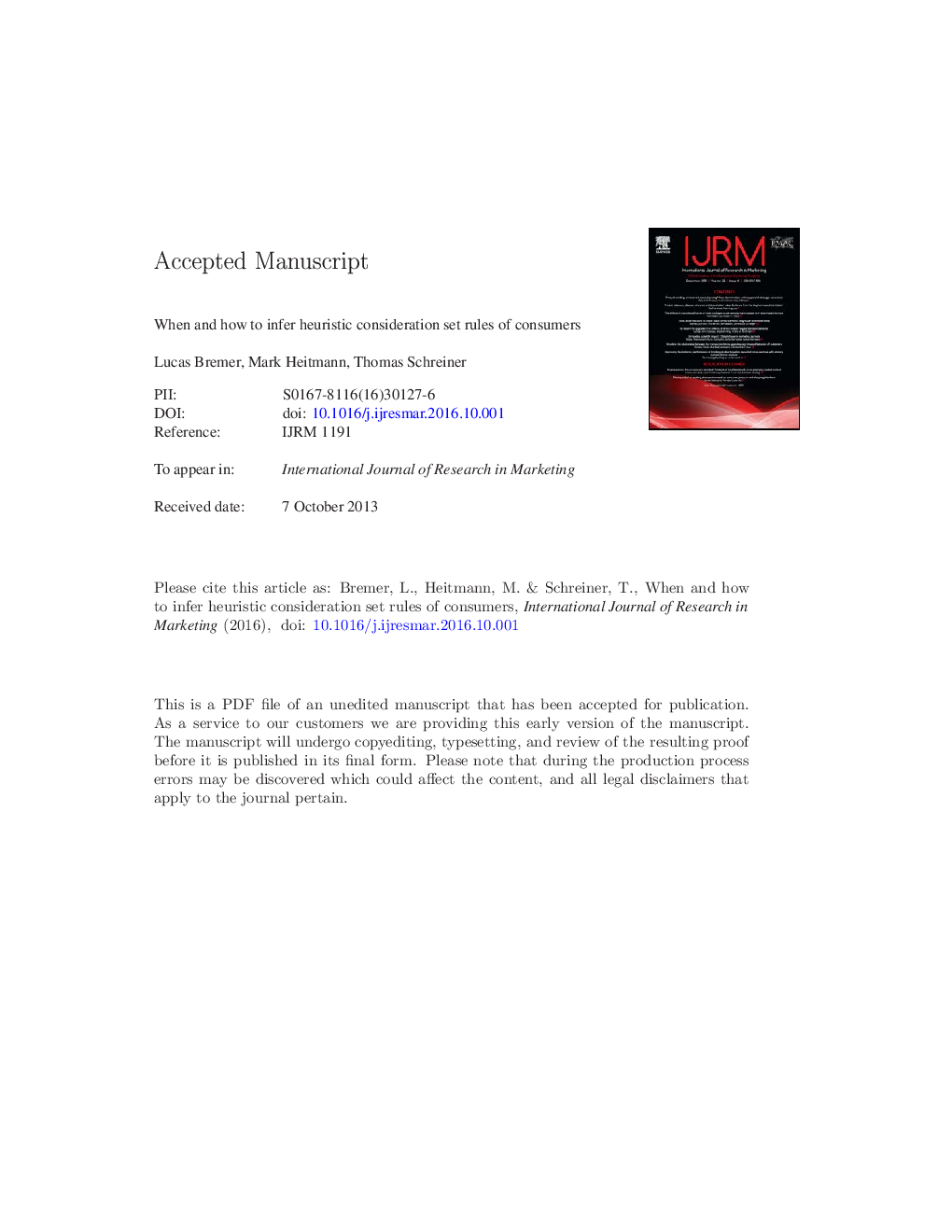| Article ID | Journal | Published Year | Pages | File Type |
|---|---|---|---|---|
| 5033748 | International Journal of Research in Marketing | 2017 | 63 Pages |
Abstract
Many consumer markets are becoming increasingly complex. In particular, as variety of products and product features proliferate, choosing is becoming a time consuming task for consumers. In response, consumers apply simplifying screening heuristics. However, established choice-based conjoint methods are challenged when consumers follow such decision rules. In particular, individual-level estimates of hierarchical Bayesian techniques (CBC-HB) cannot fully account for all possible heuristics applied by consumers. This research conducts a comprehensive comparison of four different indirect approaches for eliciting decision heuristics. We simulate a sample of heterogeneous synthetic respondents and measure whether these methods are capable of (1) inferring decision heuristics correctly, (2) adequately predicting consideration sets, and (3) improving choice predictions compared to CBC-HB. Our results show that noncompensatory inference provides additional information on decision heuristics as well as consideration sets, which can be valuable for advertising purposes as well as competitive strategy. Methods for inferring heuristics should be selected based on the complexity of products and markets. Across all scenarios, there exists at least one method which significantly improves predictive accuracy of CBC-HB.
Related Topics
Social Sciences and Humanities
Business, Management and Accounting
Marketing
Authors
Lucas Bremer, Mark Heitmann, Thomas F. Schreiner,
